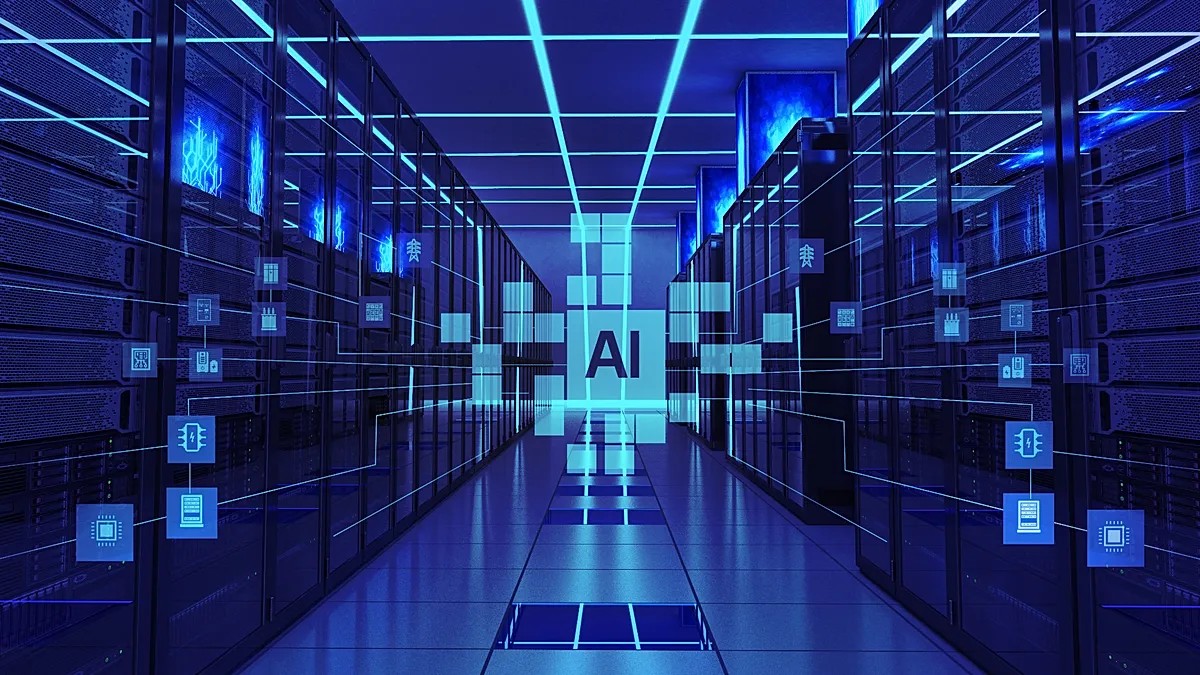While artificial intelligence (AI) tools like ChatGPT become increasingly integrated into our daily lives, a hidden cost is emerging: the environmental toll of AI development and deployment. A new report by Greenpeace reveals that despite soaring profits, leading AI companies are lagging behind in efforts to decarbonize their operations and supply chains.
This lack of progress has significant implications because the production of AI hardware, particularly microchips, is incredibly energy-intensive. By 2030, global electricity demand from these chips could skyrocket to 37,238 gigawatt-hours (GWh), surpassing Ireland’s total electricity consumption in 2023.
The report scrutinizes the environmental performance of ten major players in the AI industry, including technology behemoths like Amazon, Apple, Google, Microsoft, and Meta, as well as semiconductor giants AMD, Broadcom, Intel, Nvidia, and Qualcomm. The findings paint a stark picture: while companies rake in billions, most are failing to adequately address their environmental impact.
Failing Grades for Green Practices
Only Apple achieved even a passing grade when it comes to reducing emissions across its operations and supply chains. The remaining companies received “F” grades, with Nvidia and Broadcom ranking last.
Greenpeace criticizes these companies for inadequate climate commitments, particularly regarding their complex and opaque supply chains – the source of over 80% of emissions for many. Nvidia, despite reaching a $5 trillion valuation—a first for any company — has no set goals for renewable energy use in its supply chain. Both Qualcomm and Broadcom lack targets for renewable energy adoption within their operations or supply chains.
This lackluster performance extends to broader sustainability goals. Nvidia, Broadcom, and AMD have made no promises concerning net-zero emissions across their businesses. This failure to prioritize green practices stands in stark contrast to the companies’ claims of using innovation to combat climate change.
Transparency Gaps Hinder Progress
Adding further concern is a glaring lack of transparency from these giants. Nine out of ten companies, including heavyweights like Microsoft, Google, and Nvidia, scored an “F” for supply chain transparency. This makes it difficult to track their electricity use and renewable energy adoption among suppliers – crucial data needed to assess true environmental impact.
Calls for Urgent Action
The report urges governments and AI companies alike to prioritize environmental sustainability in the burgeoning field of AI. Greenpeace calls on these giants to commit to using 100% renewable energy across their entire supply chains by 2030 and demands greater transparency regarding their environmental practices to prevent misleading “greenwashing” campaigns.
The UNEP echoes this call, highlighting the need for concrete environmental safeguards within national AI strategies. Without such measures, the environmental costs of our increasingly AI-driven world could quickly spiral out of control.
